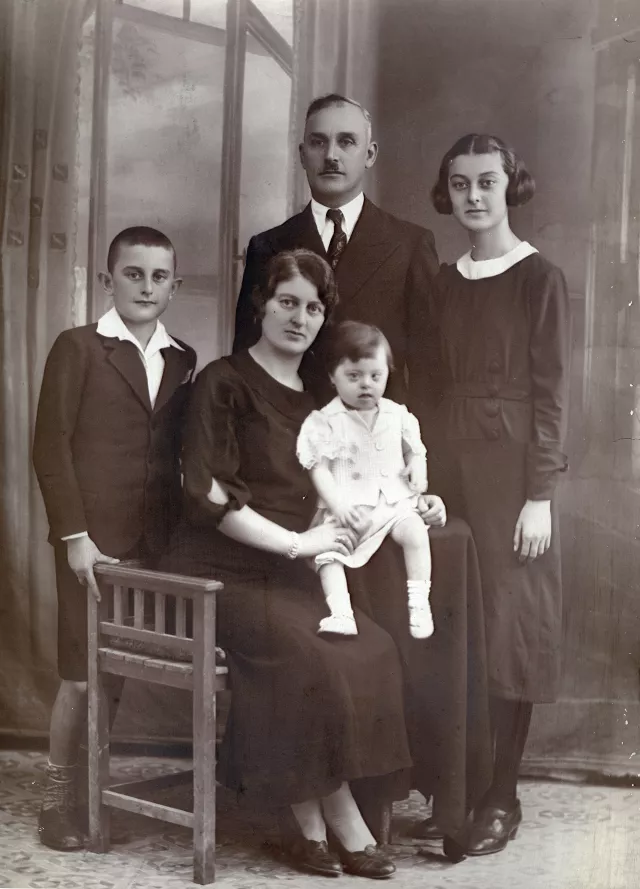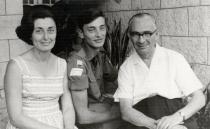This is my family in Stara Zagora in 1934. I am the boy first from left. Next to me is my mother Zelma Almalech, who is holding in her hands my sick sister Joana. Standing in the middle is my father Aron Almalech. To his right is my elder sister Roza.
My parents respected the Jewish religion and, most of all, the Jewish nation. But we had an atheistic upbringing. [Not being religous yet observing the religious traditions is typical of the Bulgarian people, Jews, Christians and Muslims alike.] I was a member of the Hashomer Hatzair, a leftist youth Zionist organization, since my childhood. My father was a distinguished social democrat ever since his youth and read lots of scholarly work and political literature, mostly Plehanov and Kautsky, but he admired most the French Jean Jaures. Yet, my father was a Jew before all and observed the traditions. But he was not a believer. My mother Zelma Almalech was more religious in that she observed very strictly all religious rules. She never ate pork and the rare times the family went to a restaurant, she never ate, because the food was not kosher. At home she insisted most on observing the traditions for each holiday.
My father often took me to the synagogue for Rosh Hashanah, Yom Kippur, and Pesach. On Noche di Shabbat [the eve of Sabbath in Ladino] the whole family gathered at home and my father read the prayer. On Saturday morning he went to the synagogue, but after that, since he was a merchant, he went to work. All his life he chaired the board of the Jewish school in Stara Zagora. At that time there were around 30,000 people in the town, of which 400 were Jews from different organizations - Maccabi, the Zionist sports organization, Hashomer Hatzair, Zionists and more right-wing predecessor to the present-day Likud organization. There was a rabbi, who was also a shochet. His name was Tovia and everybody loved him. One of my most vivid memories is my Bar Mitzvah, which brought together almost the whole Jewish community in town. In the synagogue they gave me a tallit to put on, I went up to the kebat and gave a speech. [The kebat is the place in the synagogue where only the rabbis and the men were allowed to stand, this is a Sephardi tradition.]
Eshua Almalech's family
Share
Photos from this interviewee
The Centropa Collection at USHMM
The Centropa archive has been acquired by the United States Holocaust Memorial Museum in Washington, DC.
USHMM will soon offer a Special Collections page for Centropa.
Academics please note: USHMM can provide you with original language word-for-word transcripts and high resolution photographs. All publications should be credited: "From the Centropa Collection at the United States Memorial Museum in Washington, DC". Please contact collection [at] centropa.org.

































